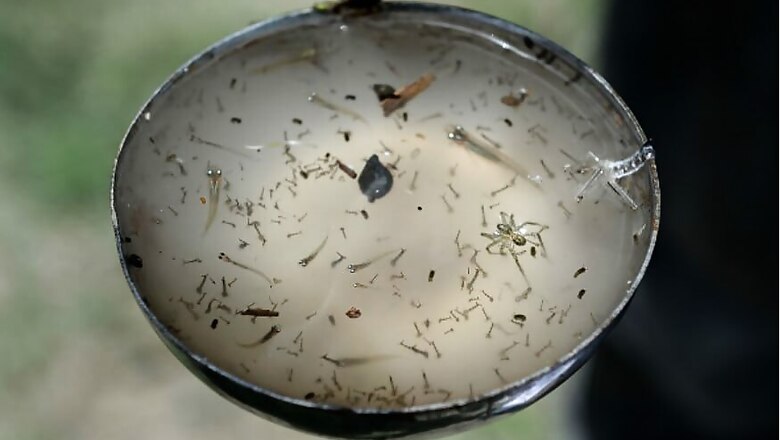
views
Researchers in their study have discovered that modifying molecules originally developed to treat skin disease psoriasis could lead to a new effective drug against malaria. Malaria is a mosquito borne life-threatening disease caused by parasites that are transmitted to people through the bites of infected female Anopheles mosquitoes. It generally occurs during monsoon season when the weather is warm and humid. World Health Organisation says that the disease is preventable and curable.
Malaria is an acute febrile illness. In a non-immune individual, symptoms usually appear 10–15 days after the infective mosquito bite. The first symptoms – fever, headache, and chills – may be mild and difficult to recognize as malaria. If not treated within 24 hours, Plasmodium falciparum malaria can progress to severe illness, often leading to death.
As per a report by Daily Nation, the researchers modified a class of molecules called pantothenamides to increase their stability in humans. The new compounds stop the malaria parasite from reproducing in infected humans and being transmitted to mosquitoes.
Researchers say that they are also effective against malaria parasites resistant to currently available drugs. In a study, published in the journal Science Translational Medicine, the researchers are confident that preventing the transmission of malaria parasites from infected people to mosquitos, these molecules can reduce the chances of mosquitoes being infectious to others.
Malaria is still a global threat with around 216 million cases and 400,000 deaths annually. “We have known for a long time that pantothenamides are extremely potent against the malaria parasite, but they become unstable within biological fluids because an enzyme clips them apart before they can act,” said Manuel Llinás, professor of biochemistry and molecular biology and an author of the study.
There are more than 400 different species of Anopheles mosquito; around 30 are malaria vectors of major importance. All of the important vector species bite between dusk and dawn. The intensity of transmission depends on factors related to the parasite, the vector, the human host, and the environment.
Anopheles mosquitoes lay their eggs in water, which hatch into larvae, eventually emerging as adult mosquitoes. The female mosquitoes seek a blood meal to nurture their eggs. Each species of Anopheles mosquito has its own preferred aquatic habitat; for example, some prefer small, shallow collections of fresh water, such as puddles and hoof prints, which are abundant during the rainy season in tropical countries.



















Comments
0 comment